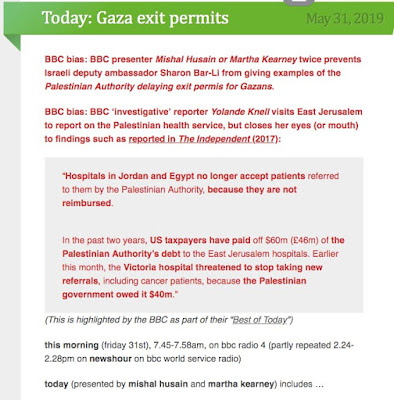Allow me to point you in the direction of a couple or three topics we’ve covered on ITBB, which have subsequently been expanded upon at much more length and in much more depth on other blogs and websites.
If we had the time and the expertise to flesh out pieces we’ve barely scraped the surface of, we’d do so. (if appropriate) Of course, if we did they’d likely end up “tl;dr”. It’s a fine line.
Search for ‘gotcha’ on this site and several posts show up, amongst which are those infamous ‘wasted opportunity’ interviews by the two Andrews - the Andrews Sisters I’ll call them - where the ‘gotcha’ strategy backfired.
Anyway,
this piece is on CAPX. It's by Douglas Carswell, and he addresses the “Gotcha’ phenomenon concisely.
“Is more gotcha journalism really what people want?”
If most ordinary people had a chance to put a question to Farage, I reckon it might be to do with the government’s handling of the Brexit negotiations or the state of our democracy. What did Marr decide to challenge Farage on instead? Things he might or might not believe about president Putin or gun control.
UK audiences might be unfamiliar with Shapiro, so one might have expected a series of questions that would enable him to inform the viewers a little about his world view – with follow up questions to challenge it. Instead, he was confronted with a tweet he had sent out in 2011.
Yes, Shapiro was guilty of losing his temper. But what does it say about his interlocutor that he set out to goad him?
Perhaps Marr and Neil thought that they were being clever and cunning by not asking the obvious. But what they did lead with sounded to me like one long effort to insinuate and smear.
That either man might have some opinions that aren’t mainstream among UK media circles is hardly interesting or surprising. It requires extraordinary self-absorption on the part of the BBC production team to imagine otherwise.
He’s making sense.
I’m not the only one who’s blogged that
nasty interview on the Today Programme, in which Dr Rosena Allin-Khan got away with some blatantly anti-Israel propaganda, uncontested and egged on by Mishal Husain. In fact, I had a
couple of goes at it.
BBC Watch also deconstructed this story, producing a forensic and detailed two-parter on the website,
here and
here, and
Honest Reporting took it a step further and included similarly exaggerated claims made in the Independent by Dr Allin Khan.
That Hamas regularly diverts international aid money to its own leaders over-inflated bank accounts is undisputed. Instead of investing in homes, schools and medical clinics, Hamas has taken away desperately needed funds and poured them into terror infrastructure, wasting countless millions of assault and kidnap tunnels built dug deep into Israeli territory. Hamas has also taken over Gaza’s medical services, with the Washington Post describing Gaza’s Al-Shifa hospital in 2014 as the “de facto headquarters for Hamas leaders, who can be seen in the hallways and offices.”
The article also fails to mention that the Palestinian Authority recently declared its refusal to pay for medical expenses in Israeli hospitals. The move came in protest over Israel deducting the amount of money the PA pays in salaries to imprisoned terrorists and families of “martyrs” and withholding the equivalent sums from tax money Israel collects on behalf of the PA. As a result, hundreds of Palestinian medical patients are currently left in the lurch regarding their treatment.
Now for something completely the same.
I
wrote about the casual - nay, affectionate references to Hezbollah and its bizarre theme park that I heard on the BBS’s radio 4 programme “Loose Ends”. Anecdotes from a nostalgic Dom Joly about his childhood in Lebanon left the impression that Hezbollah are merely cheeky rogues, rather than Iran’s proxy and brutal murdering terrorists. Again,
BBC Watch has addressed the story about Hezbollah’s terrorist plot intended for London and the BBC’s lack of interest in it.
“The story has led to questions as to why details of the raid were kept secret, why Members of Parliament were not informed and why the incident was never mentioned during extensive debates about whether all of Hezbollah should be banned as a terrorist organisation.”
Finally, the question of the BBC’s instructions on the use of the word ‘terrorism’. I thought this matter had been
wrapped up in 2005. Done and dusted, as they say.
My understanding was that the use of the word was discouraged by the powers that be because it involved making a value-judgement. Staff were only allowed to use it in reported speech or in other exceptional circumstances - apparently one was that it was ok to call it terror if the offence was committed by Jews. That’s hearsay - but I’ve heard it so I might as well say it.
Now it seems that there’s a
new edict from on high. I can’t quite
tell if it differs from the old edict, but it’s based on the principle that “One man’s terrorist is another man’s freedom fighter.” In other words, the BBC is scared to offend Islam-fuelled terrorists by showing disrespect for the cause, which could be deemed judgmental.
I thought terrorism had a definition. Google says: "a person who uses unlawful violence and intimidation, especially against civilians, in the pursuit of political aims."
In other words, it’s not really anything to do with whether Isis, Hezbollah, Hamas and the IRA fancy themselves as freedom fighters.
In the case of those ‘lone wolves’ it’s a toss-up between being a ‘qualified’ terrorist, or an insane, psychotic madman, (or woman) but cloaking it all in euphemistic language makes the BBC look less impartial, not more.









